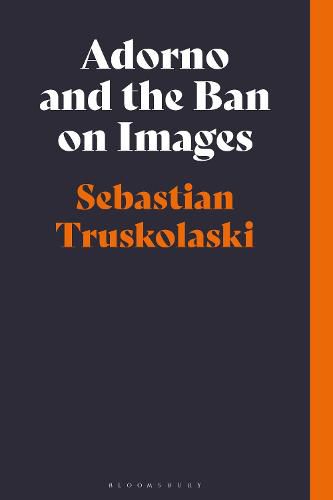Readings Newsletter
Become a Readings Member to make your shopping experience even easier.
Sign in or sign up for free!
You’re not far away from qualifying for FREE standard shipping within Australia
You’ve qualified for FREE standard shipping within Australia
The cart is loading…






This book upends some of the myths that have come to surround the work of the philosopher Theodor W.
Adorno - not least amongst them, his supposed fatalism.
Sebastian Truskolaski argues that
Adorno’s writings allow us to address what is arguably the central challenge
of modern philosophy: how to picture a world beyond suffering and injustice
without, at the same time, betraying its vital impulse. By re-appraising
Adorno’s writings on politics, philosophy, and art, this book reconstructs
this notoriously difficult author’s overall project from a radically new
perspective (Adorno’s famous ‘standpoint of redemption’), and brings his central
concerns to bear on the problems of today.
On the one hand, this means
reading Adorno alongside his principal interlocutors (including Kant, Marx and
Benjamin). On the other hand, it means asking how his secular brand of social
criticism can serve to safeguard the image of a better world - above all,
when the invocation of this image occurs alongside Adorno’s recurrent
reference to the Old Testament ban on making images of God.
By reading Adorno in this
iconoclastic way, Adorno and the Ban on Images contributes to current debates about Utopia that
have come to define political visions across the political spectrum.
$9.00 standard shipping within Australia
FREE standard shipping within Australia for orders over $100.00
Express & International shipping calculated at checkout
This book upends some of the myths that have come to surround the work of the philosopher Theodor W.
Adorno - not least amongst them, his supposed fatalism.
Sebastian Truskolaski argues that
Adorno’s writings allow us to address what is arguably the central challenge
of modern philosophy: how to picture a world beyond suffering and injustice
without, at the same time, betraying its vital impulse. By re-appraising
Adorno’s writings on politics, philosophy, and art, this book reconstructs
this notoriously difficult author’s overall project from a radically new
perspective (Adorno’s famous ‘standpoint of redemption’), and brings his central
concerns to bear on the problems of today.
On the one hand, this means
reading Adorno alongside his principal interlocutors (including Kant, Marx and
Benjamin). On the other hand, it means asking how his secular brand of social
criticism can serve to safeguard the image of a better world - above all,
when the invocation of this image occurs alongside Adorno’s recurrent
reference to the Old Testament ban on making images of God.
By reading Adorno in this
iconoclastic way, Adorno and the Ban on Images contributes to current debates about Utopia that
have come to define political visions across the political spectrum.